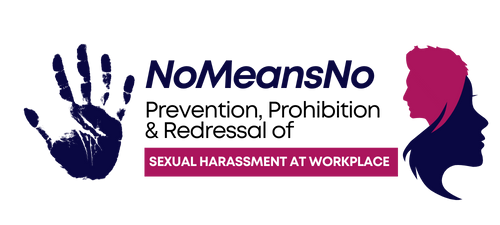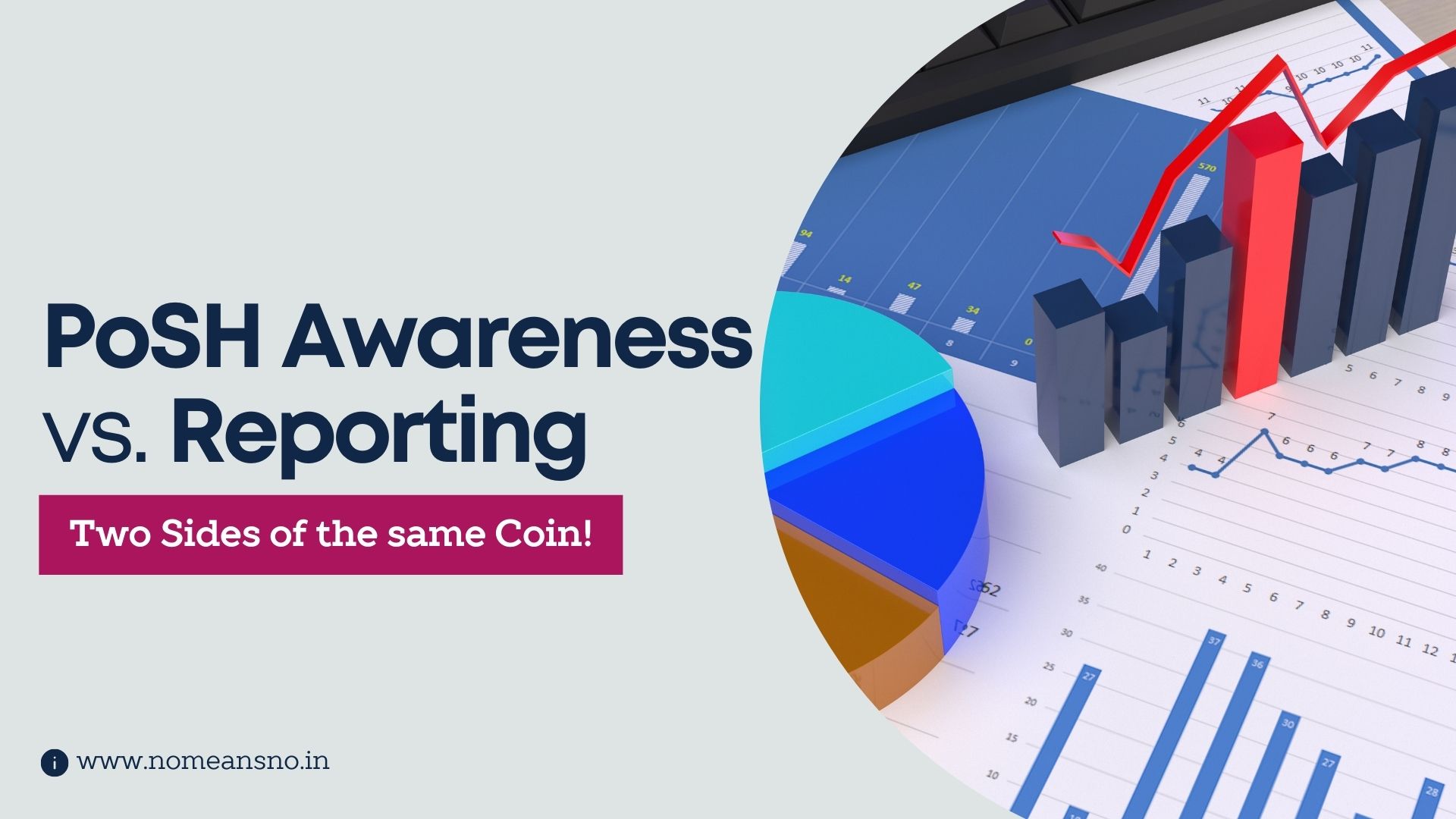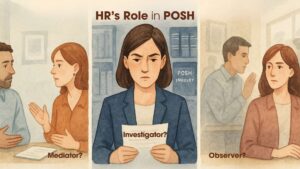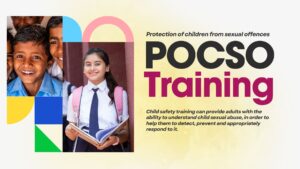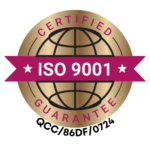As the first rays of the morning sun gently filtered through the windows of a newly launched hotel, I found myself savouring a warm cup of coffee. There I was, nestled in the comfort of a luxurious bed at a newly launched property in Mysore, reflecting on the journey that had brought me to this moment. The day before, I had concluded an extensive POSH compliance workshop, and with the session still fresh in my mind, I was preparing to head home after a long and exhaustive 10-day stretch of travel. Yet, even in this moment of calm, my thoughts were racing, swirling around questions that had resurfaced during the workshop.
“How much reporting is really happening? Are people truly finding their voices?”
These questions, though not new, lingered like a persistent echo in my mind. And each time they resurface, they bring with them memories—memories of countless young women, often in their first jobs, courageously carving out careers far from the familiar comforts of home. Their untold stories weigh heavily on my heart.
One case, in particular, stands out—a story that, as an external member of an Internal Committee for one of our clients, I was privileged (or perhaps burdened) to witness. A young intern, barely 23 years old, found herself entangled in a nightmare. A senior leader, almost twice her age, subjected her to relentless harassment. For four long weeks, she bore the weight of this torment in silence, choosing to resign rather than speak up. It was only after considerable probing that she revealed the painful truth. What she said to me that day continues to haunt me:
“If my family finds out about this, they’ll call me back to my hometown—a place that’s about 50 years behind this metro city. And that will be the end of my dreams.”
Her words struck me to my core, for her story is tragically common. It’s not just the young, ambitious women fresh out of university who face these fears. Even seasoned professionals, women who have spent years in the workforce, find themselves gripped by anxiety—worrying about what their husbands might think, whether anyone will believe them, or what will become of their careers. This pervasive fear often leads to a chilling silence, a silence that should set off alarms in any organization.
I’ve encountered leaders who, with a sense of pride, declare, “Fortunately, we’ve never had a case of sexual harassment!” I recall one instance where a client attempted to negotiate our professional fee by saying, “But we don’t get cases, so there’s hardly any work here.”
To me, such statements are red flags waving furiously in the wind. No cases? That doesn’t signal a clean slate—it points to a deeper issue. It could mean there’s a severe lack of awareness, that employees are too terrified to report, or that the Internal Committee is disconnected from the realities on the ground. We must remember that we’re dealing with human beings, not automatons. In the workplace, where we spend the majority of our waking hours—through meetings, extended work hours, travel, office parties, and client interactions—there are countless opportunities for boundaries to be crossed. What’s vital is having a high level of awareness and a robust redressal system to address these situations when they arise.
As I look back on my 11-year journey in POSH, I can’t help but notice a significant shift in reporting, especially in the past few years. My workload as an external member has more than doubled, and complaints have been pouring in at an unprecedented rate. It’s as if the floodgates have opened, and for the first time, people are finding the courage to speak up. I can’t help but wonder—are others in the HR community, leadership teams, and fellow POSH practitioners witnessing the same trend?
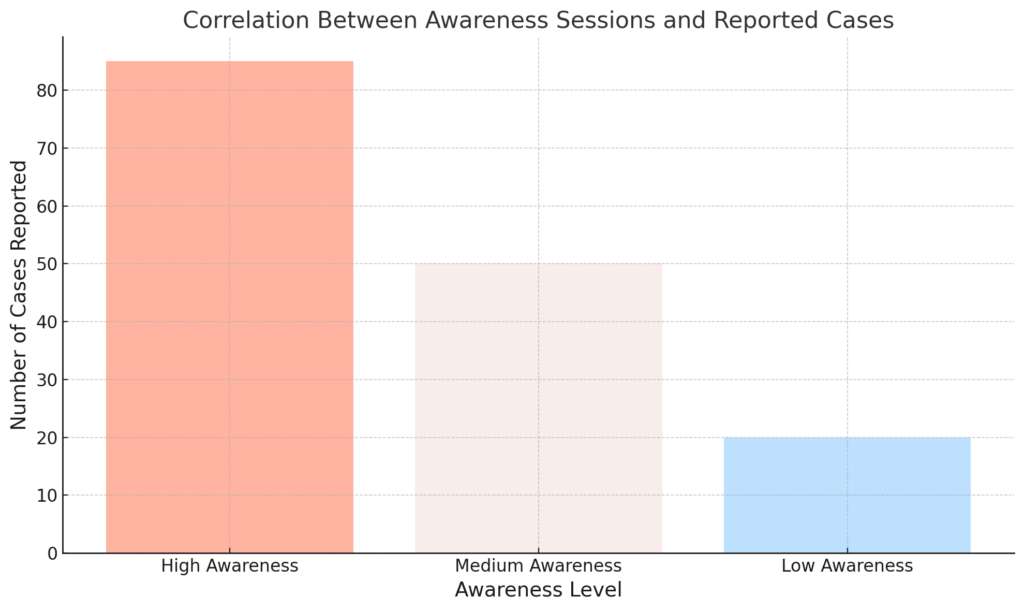
Over the past few years, I’ve observed a significant surge in the number of cases reported under POSH, particularly in the 74 organizations where I serve as an external member. The data speaks volumes: by the end of 2022, I was involved in investigating 48 cases. Fast forward to the end of 2023, and that number had nearly doubled, reaching 85. As I pen this in August 2024, we’ve already hit 110 cases. That’s a more than 200% increase, underscoring a trend that cannot be ignored.
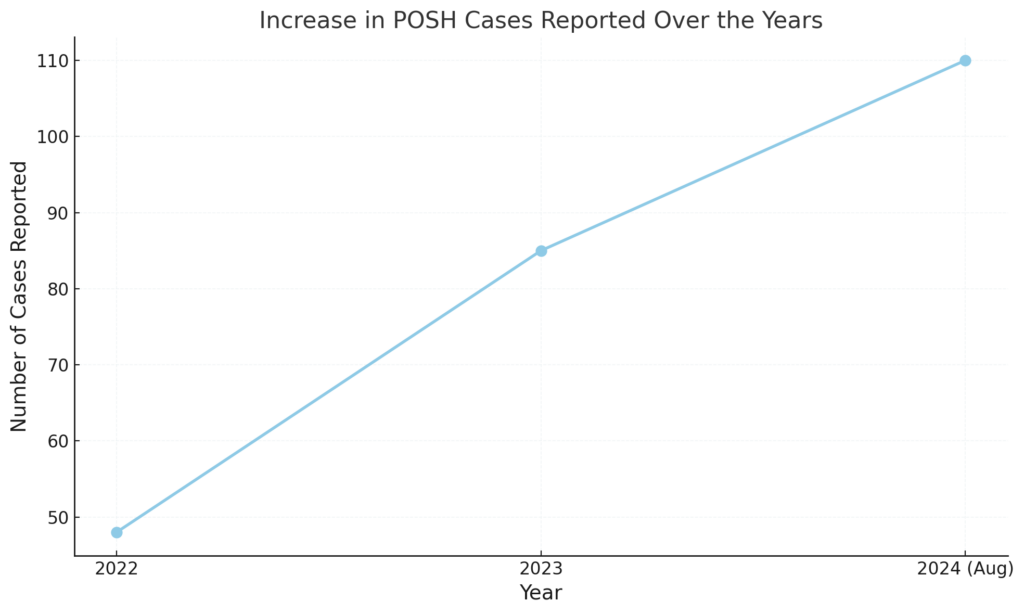
One of the most telling insights from this data is that organizations actively conducting awareness sessions at all levels report more cases. It’s a clear indicator that awareness is directly correlated with an increase in reporting—a sign of trust in the system and a move toward a safer workplace.
Breaking down the types of complaints:
- 52% fall under the quid pro quo category,
- 27% involve verbal or written sexual comments,
- 11% are related to physical touch, and
- 10% include staring, stalking, cyber harassment, and other issues.
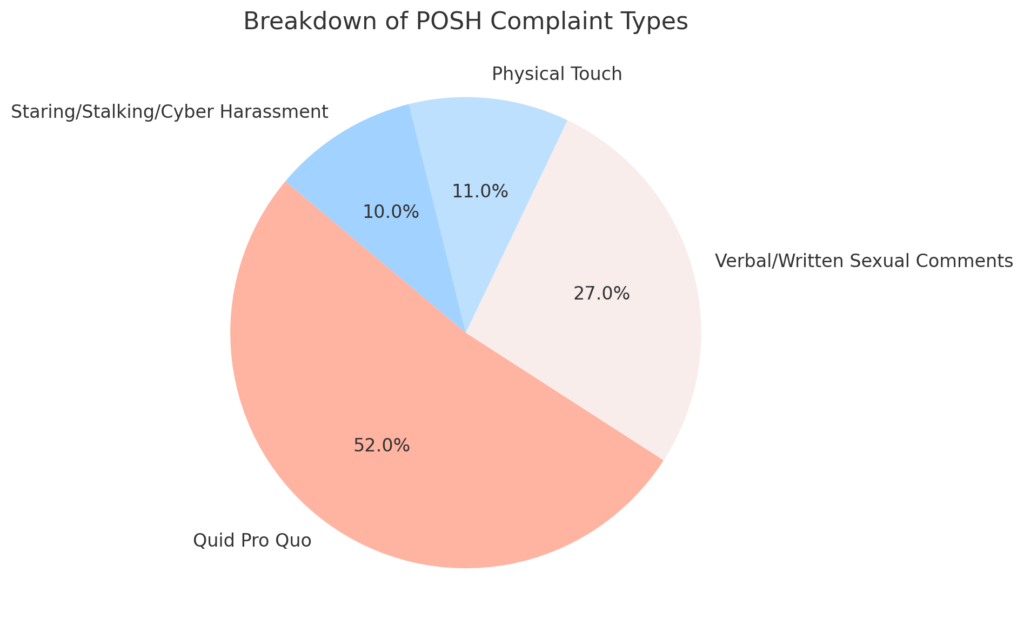
These statistics not only highlight the diverse nature of harassment cases but also emphasize the critical importance of ongoing awareness and education.
I’ve always believed that awareness and reporting are two sides of the same coin. They complement and reinforce each other. As we pour more energy into awareness, it’s only natural that reporting will increase. And while this might cause concern for some, it’s a natural and necessary progression—a detoxification process that is long overdue.
Here’s the thing—this is a good thing. It’s something we should all take pride in. We should be proud to say, “Yes, we do get POSH complaints, and yes, people are speaking up!” Because speaking up is infinitely more powerful than the silence that enables misconduct to fester unchecked. It’s more powerful than a delayed #MeToo moment, when the damage has already been done.
So, let’s commit ourselves to raising awareness, to empowering our teams to speak up, and to creating environments where employees feel safe and supported in reporting misconduct. Let’s ensure that in our organizations, every voice is heard, every complaint is taken seriously, and every individual feels valued and protected.
As I prepare to return home, I leave you with this reflection: Silence is not golden when it comes to harassment. Speaking up is. And it’s our collective responsibility to create workplaces where speaking up is not just encouraged—it’s celebrated.
Let’s keep this conversation going. Let’s work together to make our workplaces safer, one voice at a time.
#POSH #WorkplaceSafety #SpeakUp #AwarenessMatters #nomeansno #EmployeeEmpowerment

Demystifying the Supreme Court’s POSH Act 2013 Directives
The Supreme Court of India has recently issued crucial directives concerning the Prevention of Sexual Harassment (POSH) Act 2013, providing directions for organizations and professionals alike. To help you unlock the full potential of these directives, we’ve created an easily understandable and accessible document that breaks down complex legal jargon into clear, actionable steps.
